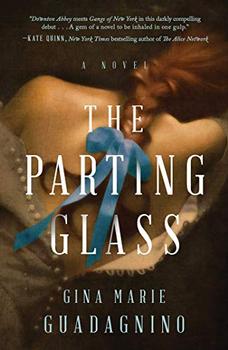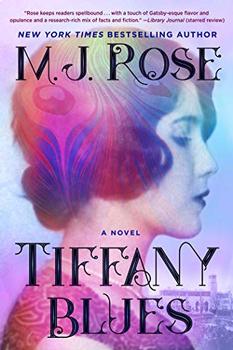Summary | Excerpt | Reading Guide | Reviews | Beyond the book | Read-Alikes | Genres & Themes | Author Bio

Devoted maid Mary Ballard's world is built on secrets, and it's about to be ripped apart at the seams, in this lush and evocative debut set in 19th century New York.
By day, Mary Ballard is lady's maid to Charlotte Walden, wealthy and accomplished belle of New York City high society. Mary loves Charlotte with an obsessive passion that goes beyond a servant's devotion, but Charlotte would never trust Mary again if she knew the truth about her devoted servant's past. Because Mary's fate is linked to that of her mistress, one of the most sought-after debutantes in New York, Mary's future seems secure - if she can keep her own secrets…
But on her nights off, Mary sheds her persona as prim and proper lady's maid to reveal her true self - Irish exile Maire O'Farren - and finds release from her frustration in New York's gritty underworld - in the arms of a prostitute and as drinking companion to a decidedly motley crew consisting of a barkeeper and members of a dangerous secret society.
Meanwhile, Charlotte has a secret of her own - she's having an affair with a stable groom, unaware that her lover is actually Mary's own brother. When the truth of both women's double lives begins to unravel, Mary is left to face the consequences. Forced to choose between loyalty to her brother and loyalty to Charlotte, between society's respect and true freedom, Mary finally learns that her fate lies in her hands alone.
A captivating historical fiction of 19th century upstairs/downstairs New York City, The Parting Glass examines sexuality, race, and social class in ways that feel startlingly familiar and timely. A perfectly paced, romantically charged story of overlapping love triangles that builds to a white-knuckle climax, this is an irresistible debut that's impossible to put down.
Guadagnino's careful plotting is very engaging, but marred slightly by a rather abrupt ending. Nevertheless, The Parting Glass provides intrigue and ardor against a vivid backdrop of 19th century New York, with a charismatic and memorable cast of characters...continued
Full Review
(644 words)
This review is available to non-members for a limited time. For full access,
become a member today.
(Reviewed by Lisa Butts).
 In the historical novel The Parting Glass, narrator Mary Ballard's twin brother becomes involved with a notorious secret society/street gang in New York City called the Order. Mary's friend Liddie recalls meeting her brother during a night of rioting that seems to have been based on the Dead Rabbits riot, which took place July 4-5, 1857, so-named for one of the gangs that took part in the mayhem.
In the historical novel The Parting Glass, narrator Mary Ballard's twin brother becomes involved with a notorious secret society/street gang in New York City called the Order. Mary's friend Liddie recalls meeting her brother during a night of rioting that seems to have been based on the Dead Rabbits riot, which took place July 4-5, 1857, so-named for one of the gangs that took part in the mayhem.
The Dead Rabbits was one of the most notorious Irish gangs in New York City in the mid-19th century. The unusual name is said to reference a gang meeting in which one member threw a dead rabbit into the center of the room, which some people present viewed as an inauspicious omen. Their gang symbol featured a dead rabbit on a pike. The Dead ...
This "beyond the book" feature is available to non-members for a limited time. Join today for full access.

If you liked The Parting Glass, try these:

by TaraShea Nesbit
Published 2021
From the bestselling author of The Wives of Los Alamos comes the riveting story of a stranger's arrival in the fledgling colony of Plymouth, Massachusetts - and a crime that shakes the divided community to its core.

by M.J. Rose
Published 2019
The New York Times bestselling author of The Library of Light and Shadow crafts a dazzling Jazz Age jewel—a novel of ambition, betrayal, and passion about a young painter whose traumatic past threatens to derail her career at a prestigious summer artists' colony run by Louis Comfort Tiffany of Tiffany & Co. fame. "[M.J. Rose] transports the ...